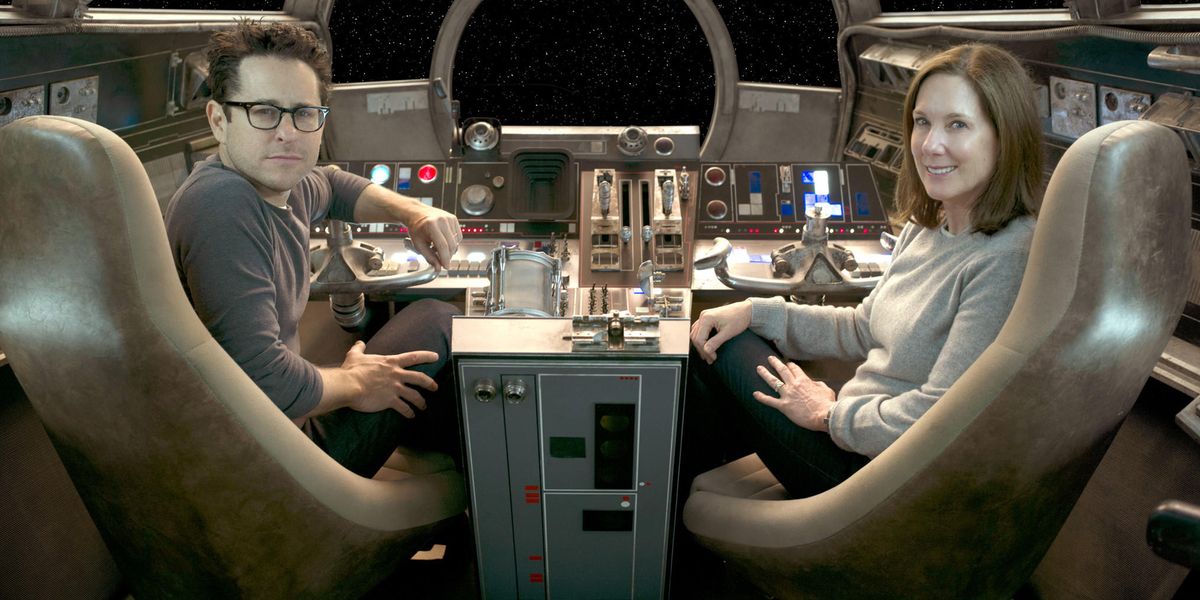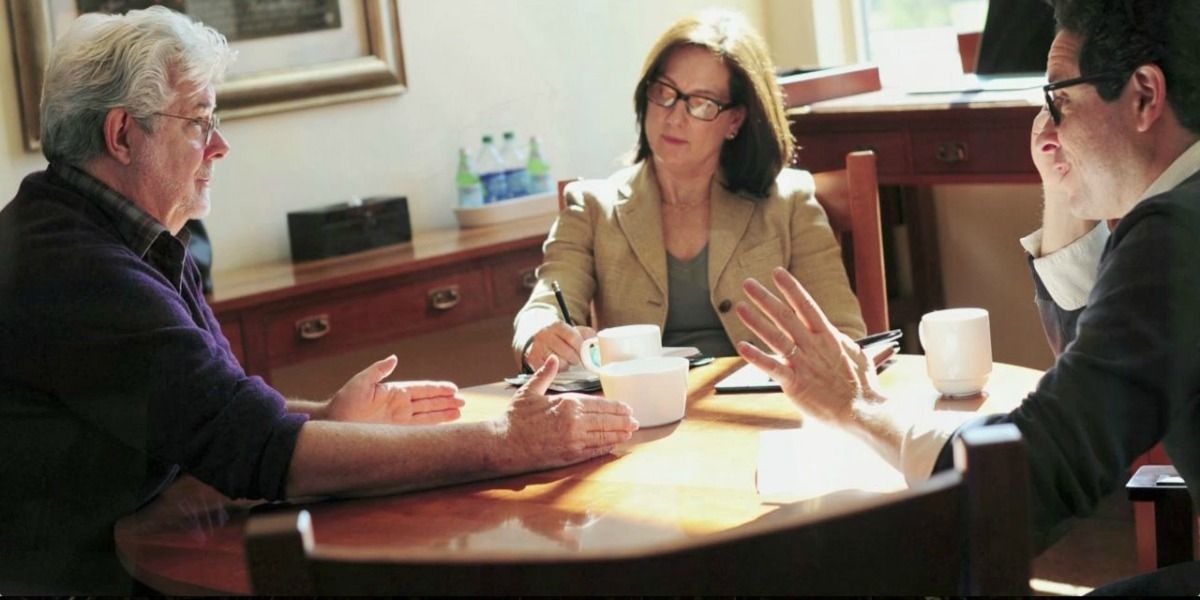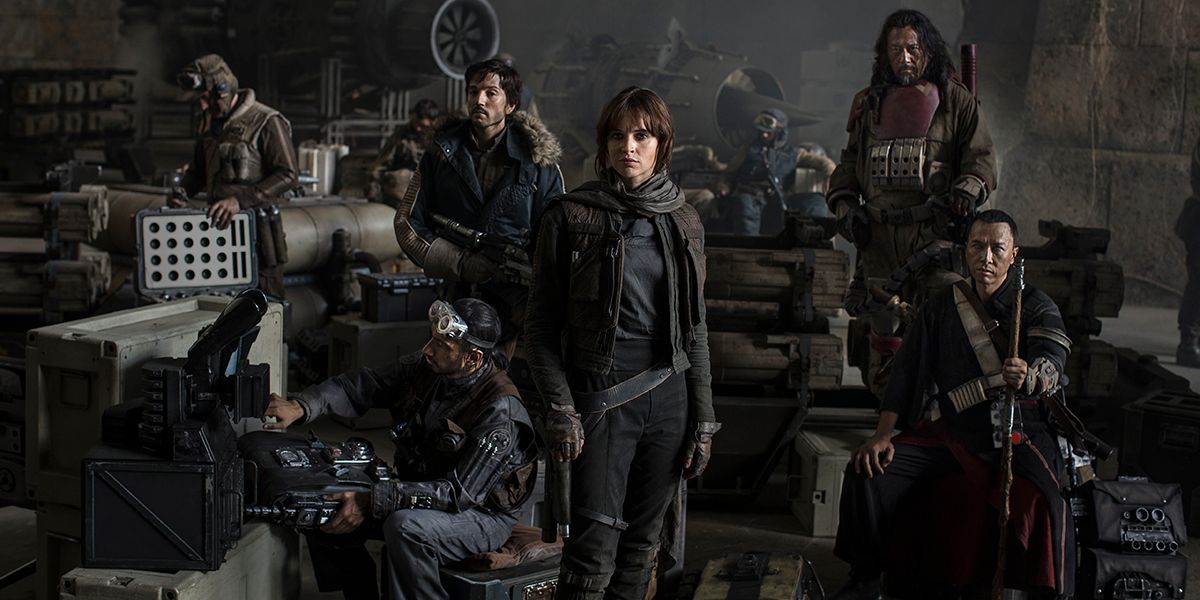When Walt Disney Pictures acquired Lucasfilm for $4 billion in 2012, the man who created it all was leaving. Though George Lucas had spent a year devising a story for a Star Wars: Episode VII and even brought them to Disney, the studio decided to go in a different direction and Lucas was no longer involved. He handpicked Kathleen Kennedy, producer of such hits like E.T. - The Extra Terrestrial and Jurassic Park, to run Lucasfilm and oversee the new era of Star Wars on film.
By all accounts, the start of Kennedy's tenure as Lucasfilm president is off to a rousing start. The first film under the new ownership, Star Wars: Episode VII - The Force Awakens, was a critical and commercial smash, breaking box office records on a daily basis and earning universal praise as a return-to-form for the beloved franchise. The Force Awakens is just the first of many new Star Wars movies Disney has planned. There are still two more installments in the sequel trilogy (releasing 2017 and 2019), as well as the standalone Anthology films that flesh out the galaxy with stories outside the traditional Skywalker saga.
Though each project has different directors and writers, there is one constant figure in all of them: Kennedy. She's the one responsible for what is arguably the biggest property in pop culture, making sure everything is as strong as it can be before being released to the public. It's a daunting task for sure, and though Kennedy is the head boss at Lucasfilm, her leadership style is very different from her predecessor. In a Vanity Fair profile, Kennedy commented on Lucas' reign and how things have changed with her in charge:
"I think this company, for a long time, was driven by waiting to see what George wanted to do. I don’t run this company that way. People aren’t sitting around waiting to see what Kathy wants to do."
There are plenty of moviegoers who would agree with that sentiment. Many believe Lucas' ultimate undoing was his personal mission to have complete creative control over his projects. Last year, Star Wars actor Anthony Daniels suggested that Lucas was unwilling to collaborate with other people, even if that would have meant for a better film. The fallout between Lucas and producer Gary Kurtz (who worked on the first two Star Wars movies) is well-documented, the creative differences proving too great for them to work together. This extended to the prequels later on in Lucas' career, where he seemed to surround himself with people who gave him maximum leeway and did not question his choices. In Lucas' mind, the Star Wars films were his films, and he could do what he wanted (and, he did have that right).
Things are a little different with Kennedy. J.J. Abrams, director of Episode VII, was far more open to additional input. He worked diligently on the screenplay with veteran Star Wars scribe Lawrence Kasdan, and invited people such as Simon Pegg to act as a sounding board for various ideas. While having too many cooks in the kitchen is typically a bad thing, film is meant to be a collaborative process between numerous individuals. If one person is in control of the whole thing, there's a risk they may not see the forest for the trees and lose their way. Having a solid team in place, keeping everyone in check, allows for further ironing out the story, since creative talents can all have their own ideas. Han Solo replying to Princess Leia's admission of love with "I know" was the brainchild of Harrison Ford, so there's something to be said about the benefits of collaboration.
Kennedy appears to be much more hands-off when compared to Lucas; she is not even one of the members of the Lucasfilm story group that manages the new Star Wars canon. She's obviously involved with the Star Wars universe and has a say in what gets produced, but Kennedy is not the only one generating concepts for new materials in a galaxy far, far away. For instance, John Knoll, chief creative officer at Industrial Light and Magic, was the one who initially pitched this December's film, Rogue One: A Star Wars Story. Kennedy appears to let the various directors, show runners, writers, and authors work on their projects without getting too involved. As she states, everyone is not sitting around waiting to see what she wants to do. Everyone at Lucasfilm is thinking of things they want to do and then see if that fits in with the overall vision.
Time will tell if this method continues to yield positive results, but it certainly is an exciting new direction for Lucasfilm as a company. Instead of relying on the whims of one person, the doors are open for anyone eager to play in this sandbox to get a chance. If the objective is to release a new Star Wars movie every year for the foreseeable future, having a wide variety of voices is a necessity to ensure the brand stays fresh with each passing installment. There's a whole generation of filmmakers who were influenced by the original Star Wars trilogy and any one of them could potentially leave their mark on the galaxy far, far away. For fans, they couldn't have asked for much else.
NEXT: 13 Ways Star Wars Redefined Movies
Star Wars: Episode 7 – The Force Awakens is now in theaters, and will be followed by Rogue One: A Star Wars Story on December 16th, 2016, Star Wars: Episode 8 on December 15th, 2017, and the Han Solo Star Wars Anthology film on May 25th, 2018. Star Wars: Episode 9 is expected to reach theaters in 2019, followed by the third Star Wars Anthology film in 2020.
Source: Vanity Fair



